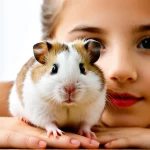Essential Traits That Suit Cats for Indoor Living
Indoor cats thrive when they exhibit independence and require minimal supervision. These traits make them ideal companions in homes where owners may not be constantly available to attend to their pets. Cats naturally prefer environments where they can explore and rest without frequent interruptions, so an indoor setting aligns well with these behaviors.
Another key trait is their quiet and unobtrusive behavior indoors. Unlike some pets that may be loud or demanding, cats generally navigate their homes silently, avoiding disruptive noise. This makes them excellent indoor animals, especially for shared living spaces or apartments where noise levels matter.
Also read : Why Do Cats in the UK Fascinate Us So Much?
Natural adaptability to confined spaces is crucial. Indoor cats often adjust well to limited room size and can create comforting routines within these spaces. This adaptability minimizes stress and encourages healthy behavior. Cats use vertical spaces and cozy corners effectively, demonstrating their capacity to thrive indoors without becoming restless or destructive.
Overall, when selecting an indoor cat, consider these traits: independence, quiet behavior, and adaptability. They assure a low maintenance lifestyle for both the cat and owner, fostering a peaceful coexistence.
In the same genre : What Are Some Unusual Traits of UK Cats?
Practical Benefits for Cat Owners
Cats provide strong companionship without the high demands seen in some pets. Their independent nature allows them to be affectionate yet low-maintenance, making them ideal for owners seeking emotional support without constant attention. This unique balance suits many lifestyles, especially for those with busy schedules.
Another advantage lies in how cats contribute to allergen control. Compared to dogs and other furry animals, cats typically produce fewer allergens and shed less, which can reduce allergic reactions in sensitive individuals. This aspect of cat ownership often makes them a preferable choice in homes where allergy concerns exist.
Additionally, cats adapt well to various living environments, making them a good lifestyle fit for urban apartments or larger homes. Their natural contentment with indoor living means they require less outdoor exercise, benefiting owners who may not have ample time for lengthy walks.
Overall, the combination of manageable care, lower allergen impact, and strong companionship creates a practical and appealing option for many seeking pet ownership without significant lifestyle disruption.
Comparison of Cats to Other Common Indoor Pets
Cats stand out in pet suitability when compared to dogs and small mammals. Unlike dogs, cats generally require less maintenance, as they do not need daily walks or extensive outdoor activity. This makes cats an excellent choice for owners with busy schedules or limited access to outdoor spaces.
In terms of training, cats excel with their ability to adapt to litter boxes quickly. Many pet owners find that cats’ natural inclination to use a litter makes house adaptation simpler than training a dog or small mammal to use a particular area. Cat traits like independence and low noise levels also contribute to their appeal for indoor living.
When evaluating cats vs dogs, it’s clear that cats demand fewer daytime commitments, allowing owners to leave them alone for longer periods without concern. They also require less continuous attention, which can be a significant advantage over dogs, who often need more interactive play and exercise.
Choosing cats over other indoor pets can enhance convenience and harmony in your household, especially if you seek a pet requiring manageable care without sacrificing companionship.
Health and Safety Aspects for Both Cats and Owners
Creating a safe indoor environment is crucial for cat health and enhancing pet longevity. Keeping your feline indoors significantly reduces exposure to outdoor hazards such as traffic accidents, predators, and contagious diseases. This controlled setting minimizes risks of injuries and illnesses common in outdoor settings.
Veterinary insights emphasize that indoor cats tend to live longer due to fewer threats and infections. However, a safe indoor atmosphere requires careful planning. For example, remove toxic plants and secure windows to prevent falls. Avoid small objects that cats might swallow and use non-toxic cleaning products to protect sensitive feline respiratory systems.
Additionally, encouraging regular play and exercise inside supports physical and mental well-being, crucial components of indoor pet safety. Veterinarians recommend interactive toys and climbing structures which simulate natural behaviors and help maintain a healthy weight.
In sum, prioritizing health and safety indoors demands balancing protection from external dangers with environmental enrichment. This approach not only promotes wellness for cats but also peace of mind for owners, fostering a harmonious human-pet relationship.
Noteworthy Cat Behaviors That Benefit Indoor Environments
Indoor cats often excel in cat litter training, making cleanliness manageable. Their natural inclination toward a designated spot helps them adapt quickly to litter boxes, reducing hygiene concerns for owners. This behavior not only simplifies maintenance but also supports a fresher home environment.
Cats display impressive agility, allowing them to navigate vertical and tight spaces with ease. This physical ability enables self-entertainment, as agile cats enjoy chasing toys or climbing structures. Owners benefit since cats satisfy their play instinct autonomously, decreasing the likelihood of destructive behaviors stemming from boredom.
Behavioral enrichment is vital to keep indoor cats stimulated. Offering a variety of toys and interactive playtime addresses their natural curiosity and activity needs. Engagement through play reduces stress and prevents common indoor issues like scratching furniture.
Understanding these behaviors underlines the importance of creating an enriched indoor environment tailored to feline instincts. By combining ease of cat litter training, encouraging their agility, and fostering their play instinct with proper enrichment, owners can ensure a happy and healthy indoor cat.

